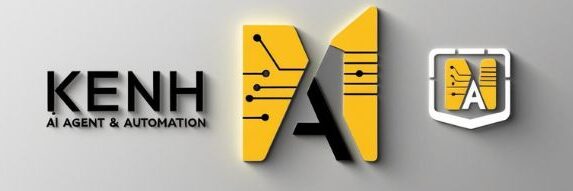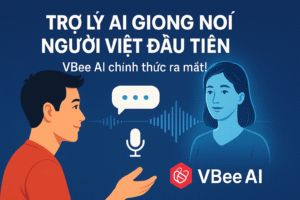From Prompt to Action: The Evolution of AI Workflow
In the early days of AI, a simple prompt returned a static answer. But now, in 2025, that same prompt can trigger an entire chain of intelligent actions—automatically handled by AI Agents through dynamic workflows. The AI revolution has evolved from a reactive interface to a proactive ecosystem.
This article explores the shift from isolated prompts to fully autonomous workflows, enabled by key innovations like the MCP framework, tools like Claude AI, GPT-4.5, and AutoGPT, and the rise of multi-agent collaboration.
The Rise of AI Agents: Replacing Repetition with Intelligence
AI Agents are autonomous software entities capable of perceiving, reasoning, and acting to achieve goals. Unlike traditional automation (like if-this-then-that rules), agents adapt based on context, user input, and real-time data.
What Makes AI Agents Different?
Goal-Oriented: Not just task-driven but outcome-focused
Context-Aware: Understand past interactions and user intent
Collaborative: Work with other agents and humans in real time
Autonomous: Execute without constant oversight
In modern enterprises, AI Agents are managing customer service, content production, data analysis, recruitment, and even creative workflows.
Automated Workflow: The Foundation of the Digital Future
A workflow is a series of steps taken to complete a task. But AI transforms this into something much more intelligent.
Traditional Automation vs. AI-Driven Workflow
| Traditional Automation | AI-Driven Workflow |
|---|---|
| Rule-based, rigid logic | Contextual, adaptive logic |
| Limited to repetitive tasks | Handles decision-making and variation |
| Requires constant human input | Functions autonomously |
| No learning or memory | Learns from interaction and data |
Why Workflows Matter
In marketing, for instance, an AI-driven workflow might:
Identify trending topics via Claude AI
Auto-generate blog ideas with GPT-4.5
Write drafts, optimize for SEO, and schedule via AutoGPT
Push content to CMS and social media
Monitor engagement and refine strategy
All of this happens from one user prompt—“Write a blog post on AI trends for SMBs.”
MCP Framework: The Brain Behind Multi-Agent Collaboration
As workflows become more complex, coordination between agents becomes critical. That’s where MCP (Multi-agent Collaborative Process) shines.
What is MCP?
The MCP Framework is an architecture designed to enable coordinated, intelligent collaboration between multiple AI agents. Rather than isolated functions, agents work as a team—each with a clear role.
Example in Action: Automated Hiring
Sourcing Agent: Scans platforms for qualified candidates
Screening Agent: Analyzes resumes and filters by score
Interview Agent: Schedules interviews via calendar API
Reporting Agent: Delivers analytics on candidate performance
With MCP, these agents communicate, adapt, and optimize in real time—much like a well-trained human team.
Tools Powering the AI Workflow Evolution
Let’s break down the most powerful tools that are accelerating this AI-driven workflow transformation.
1. Claude AI – The Research and Reasoning Master
Claude AI by Anthropic is ideal for deep understanding of context, multi-turn conversations, and semantic analysis. It shines in tasks like:
Research summarization
Keyword clustering
Tone and voice training
Prompt refinement
2. GPT-4.5 – The Content Engine
OpenAI’s GPT-4.5 delivers unparalleled performance in natural language generation. Use cases include:
Long-form content writing
Structured document creation
Email marketing drafts
Expert-level chatbot agents
3. AutoGPT – The Autonomous Orchestrator
AutoGPT connects APIs, tools, and models to complete entire workflows autonomously. Key features:
Multi-step goal completion
Real-time API execution
Loop-based task refinement
Plugin compatibility with CMS, CRMs, databases
With AutoGPT, a prompt becomes a project—automatically executed from start to finish.
Real-World Example: Marketing Workflow from Prompt to Action
Prompt:
“Promote our new AI writing course for marketers via blog, email, and social.”
AI Workflow Execution:
Claude AI → Researches key pain points for marketers
GPT-4.5 → Writes 1,500-word blog and 3 email templates
AutoGPT → Schedules blog post, sends emails via Mailchimp, and creates image captions
Publishing Agent → Posts to WordPress and LinkedIn
Analytics Agent → Tracks click-through and engagement for feedback
Total human effort: < 15 minutes.
SEO Benefits of Intelligent AI Workflows
AI-driven workflows don’t just save time—they increase performance. Key SEO advantages:
Keyword clustering via AI reasoning
Semantic-rich content that answers intent
Built-in internal linking and metadata suggestions
Continuous improvement through feedback loops
With the MCP architecture, each agent feeds improvements back into the loop—making content better with each iteration.
From One Prompt to Scalable Strategy
The real power of AI workflows is scalability. From one idea, agents can generate:
10 blog posts
50 social media captions
5 email campaigns
Keyword clusters & optimized metadata
Midjourney-based brand imagery
Automated scheduling and tracking
Instead of writing a blog, you’re launching a campaign—all from a prompt.
The Future of Workflows: Predictive & Proactive
Next-gen AI agents will go beyond execution. They’ll predict what needs to be done before you even ask.
Imagine logging into your dashboard and seeing:
“Engagement dropped on your last article—should I optimize it?”
“New keyword opportunity: Want to generate content now?”
“Your competitor published a new feature—here’s a comparison article ready to post.”
That’s not the future. That’s now—with AI agents empowered by real-time data and intelligent orchestration.
Final Thoughts: Intelligence Is the New Efficiency
From static prompts to dynamic actions, the evolution of AI workflow is reshaping how we work, create, and grow. Powered by tools like Claude AI, GPT-4.5, AutoGPT, and frameworks like MCP, we’re moving into a world where business logic runs autonomously and intelligently.
If you’re still using AI to just write paragraphs—you’re missing the revolution.
CTA: Ready to experience the future of AI-driven workflows?
👉 Discover MagicLight AI Agents and turn prompts into real business results—automatically.

